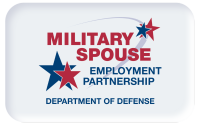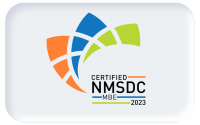Managed Document Review (MDR) is often confused with attorney staffing, even after 15+ years as a commonly used service model. At TCDI, we often get requests to place attorneys onsite at law firms across the US and we have to turn away these engagements because legal staffing is not something we offer at TCDI. In as few words as possible, here’s why – staffing is too much out of our control to offer a guaranteed high quality outcome. And TCDI is all about quality outcomes.
What’s the Difference?
Staffing for document review entails a firm or in-house counsel needing scalability on a project or task for a specific time on premise in their building, using their equipment and managed by their team. Think temporary talent to fill temporary needs. Attorneys or paralegals are needed because resources are thin and deadlines are tight. Legal staffing can supply these additional staff members for the required amount of time with the requisite skills appropriate for the project onsite at the firm or corporation. Sometimes they will also offer temporary space, temporary equipment and temporary project managers.
MDR is not staffing, it’s a service model that is much broader than that. In a MDR engagement, not only do you get the needed resources for the project, you also get expertise in workflow design and implementation, timeline and budget ownership, quality control management, transparency and reporting, consulting and best practices execution of the review itself. You just get ‘more’ and often for the same cost as staffing.
Why We Feel (like really feel) MDR is better than Staffing
Reason 1: People use staffing firms because they’re under-staffed and usually under some sort of deadline
This creates all sorts of stress fractures in best practices and company policies. Adding more people, that you have to a) manage and b) fit into your firm or corporate culture and physical space, just adds more stress. It stresses you out, it stresses your co-workers and employees out and the temps don’t feel very comfortable either. In an environment where everyone is a stranger – there’s a time limit to temporary employees time onsite so no one bothers to get to know each other – can people really be expected to do their best work?
Reason 2: You, attorney practicing law, are not a legal project manager
You are using your law degree and bar admittance to be responsible for litigating a case for a client, understanding case law, navigating big picture legal process and representing your client in all their case needs. You are not, nor have you ever wanted to be, a legal project manager moving a document through the litigation lifecycle.
We, at TCDI, love that stuff. We exist solely to move each and every document from collection through production and for use at trial. We live for that.
Hyperbolic, yes, but not entirely untrue. We are experts at managing document reviews and we have staff whose only responsibility is to manage teams of reviewers through the various phases of eDiscovery. Our team of experienced project managers, team leads, QC leads and Priv captains are adept at lean six sigma processes, are visualization and predictive analytics experts, can be thought of as eDiscovery consultants and are 100% engaged process and resource supervisors, dedicated to helping our clients (you) design and implement discovery workflows.
Reason 3: Your time is too valuable to be spent managing document reviews
We are the more cost-effective option. As noted above, we do this for a living and that creates all kinds of efficiencies in delivery and cost. Plus, we’re really good at it, so we don’t waste time or have much re-work to do.
We will take ownership of the below:
- Putting together a team and coordinating schedules, team collaboration and timeline management
- Coordinating creation of a review protocol with you
- Scheduling and running training
- Setting up the Review platform and coordinating user access, batching documents for 1st level, QC, Priv and pre-production review
- Performing QC and giving reviewers daily feedback and facilitate questions for you where needed on Responsiveness or Privilege
- Re-training the team whenever necessary and correcting/re-calibrating review decisions
- Providing daily status reports, highlighting documents of interest and running targeted searches/reports for you
Through our management of the above items, it will free you up to supervise the overall success of the review by answering our questions, focusing on Responsive documents in QC and making the final Privilege calls.
Reason 4: We have expertise that you could really use
Our team members have collectively worked on thousands of projects. That gives us great perspective and lots of experience in various workflows, knowing the strengths and weaknesses of process decisions throughout the matter. We can and do offer consulting on best practices and cost-effective and innovative strategies as part of our fixed price. We don’t just loan you our people, we loan you our total experience and expertise.
In a staffing model, the only guarantee is that people will show up. There’s no guarantee that they will be good at their job, be a team player, add value to your project or deliver a high quality outcome. All of those factors for project success fall squarely on your shoulders as their manager. The team is only as good as the guidance, training and oversight you can provide in the limited time you have available to manage a review.
We can guarantee all of the above in a MDR model. We will shoulder the responsibility of forming a team and managing their time, their quality, their ongoing training and spend all of our time helping them succeed. Taking this task off of your shoulders frees you up to supervise the big picture decisions of the process, not review team schedules or personalities.
I concede sometimes staffing has its place, but we don’t think it belongs in document review. Especially when the MDR model has matured enough to completely allow you to offload the daily management of the logistics of document review, take advantage of all of our expertise in the form of embedded consulting AND still fully retain overall oversight of the project through our commitment to transparent processes and stellar communication.

Caragh Landry
Author
Share article:
Caragh brings over 20 years of eDiscovery and Document Review experience to TCDI. In her role as Chief Legal Process Officer, she oversees workflow creation, service delivery, and development strategy for our processing, hosting, review, production and litigation management applications. Caragh’s expertise in building new platforms aligns closely with TCDI’s strategy to increase innovation and improve workflow. Her diverse operational experience and hands on approach with clients is key to continually improving the TCDI user experience. Learn more about Caragh.





